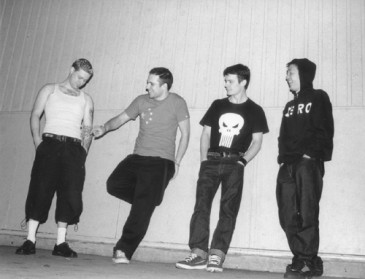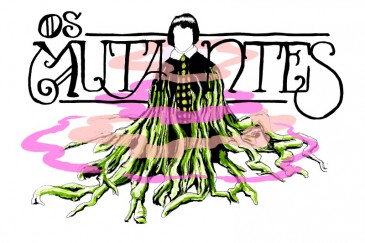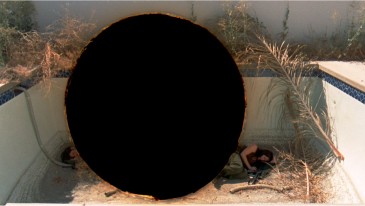PREWITT’S DARK HORSES
“In Archer you have it all—mystique, wit, and liberation.” —Francis Azul
“Some praise today’s singer-songwriters for turning phrases and having all the pretty chord changes. Certainly this talent can garner such extol, but I do not court such folly! Instead, I slept by the river Prewitt and it swept over me.” —Jonathan Mannet
“Chicago native Archer Prewitt was raised on a diet of Catfish and Crawlers, for his songs are informed by the beauty below the mud of today’s popular music.” —P.J. Henderson
“Archer Prewitt (The Coctails, The Sea and Cake) has just completed his third solo outing—his first under the Thrill Jockey Records banner! Three is the moveable feast served to the exquisite corpse before the new wine.” —Nino Piero
“I see some kind of Calvino-esque thing happening here. Like a mirror reflecting an invisible possibility—true, utopia is no place—but its birds know these songs.” —Colette A.
“Look beyond the triviality of modernity, for there are the grasses and greens on which Three’s dark horses graze! Praise him.” —Georgina Wyatt
Discorder: Based on the quantity of personnel cropping up on your record one would think you had an open door policy running with the studio. How were the songs on Three hammered out?
Archer Prewitt: The band now comprises four people: Mark Greenberg, Dave Max Crawford, Chris Manfrin and myself. We had most of the material worked up for shows and tours and it was solid. Steve Goulding had written drum parts for more than half the material before moving to New York, so he was flown in to play those songs. The basics for 16 songs were done in less than three days and then the month long process of recording vocals and numerous overdubs were done off the studio clock at Mark’s Mayfair studio/garage where we share a load of mics and equipment. Max and I worked long hours every day to make the deadline for Thrill Jockey. It was exhilarating to have an obsessive partner to work with. We had a great time. Mark helped a lot when he could. The guitarists, horns and vocalists came in at different times and did their parts. No isolation booth made for very intimate relaxed sessions. The strings were recorded at King Size the first day of mixdown with Paul Mertens conducting his arrangements fresh off the plane from England where he toured with Brian Wilson. Very exciting stuff.
The arrangements on Three are neither spartan nor overwrought. I think especially of the flutes on “Two Can Play” and the stuff of “No Defense” and “Behind Your Sun.” Was there any temptation to over-use the talents of Paul Mertens, or at the onset where you hoping for a fine balance?
I like to use arrangements sparingly. I wanted organ and other more humble sounds for the bulk of the record. The songs that want a bigger sound seem to demand it. But we went into the thing with only a few songs getting the grand treatment.
Congrats on “Sister Ice”—that is something nice.
Thank you. Many people like that one. Kelly and Nora make it for me. I heard ladies singing on that from the beginning. I’ve been doing falsetto for years when we play it live.
On Three’s final number “The Day To Day” you drop the phrase “terminate your charms.” One gets the sense that you really pin down your themes for this last track. Some time has passed since the recordings, the ideas have taken flight to roost with the listener. How has your perception of the record changed as you’ve seen things reach fruition?
The record takes on a life once the proper sequence has been arrived at. It feels right. And then the placement sets up a flow of moods and the lyrics take on new significance. Sort of like binding a booklet of short stories, I guess. I could fuss over the songs for a while longer or remix a few, but I’m happy with the thing as a whole.
The pop psychologist is fascinated by the notion of the b-side.
Traditionally, the darker side of the singer-songwriter is felt on the flipside. The subconscious? Well, we now know this is probably a leap, however outsider culture tends to revere this dark freedom. What is Three’s potential b-side? A cover?
We had a song mixed and ready for the album, but it just didn’t fit with the others. It’s called “We Go Alone” and it’s darker for sure. I don’t know what we’ll do with it. I like it enough to want to release it in the future.
I ran some background checks, called the numbers and read the critical press. Most praise you as a soul giving to the future, a man out of this time. I find this a bit depressing. What do you say to those that imagine you more influential 20 years from today?
Well, I’ll be old then, won’t I? I don’t need to be influential. I’d like to be heard by a few more people, but I don’t have grand ambitions for world recognition. That’s just not going to happen. I’m flattered by the “soul giving to the future” line. Oh my. I’ll just keep working and let the people say or listen as they may.
The role of the singer songwriter is so historically informed. You are either a nature boy who stumbled out of the woods and onto the stage, or the (east) village bard taking the cultural temperature. How does the construction impact you?
I like reading and talking about the legends rather than forming my own.
Canonization is out of style. The music industry does want any more canons—they have enough long-range guns. There is an established elite of songwriters, an American voice. Music is a fleeting art form. Agree or disagree.
Style is fleeting; the dressing of the flesh of music. Popular music is always draped in the sound of the times. The elite seem to write great songs (or seviceable ones) and dress them in the production of the day.
Occasionally someone will define the style to come and if it strikes then most follow. It is heartening to think of the music on the radio as fleeting.
The phrase “well-mannered” comes up with notable frequency amongst Prewitt debaters. Songwriters of a certain school thrive on antagonism—Lou at his best taking aim with the New York Streets, Cale at his best taking aim at Lou, Chilton fuelled by spite for the industry, etc.—are you free from it?
I’m not having the chip on the shoulder. I find it tedious and waste of energy. I keep up my guard and if pushed will react in an aggressive way if I must. I try not too. What’s the point? I wish Alex Chilton would write some good songs again and quit trying to maintain this stance of contempt. I get angry when I think about it. Ah, let him be.
I was interested by the reference to Roy Harper cropping up somewhere in your biography. Some argue his seminal moment was his “Another Day.” How does your own ode “Another Day” sit beside his? Both are open to interpretation, but bonds breaking never sounded so sweet. I particularly like the dramatics of your last verse—the gorgeous crescendo praising ‘lightness’! Has this number been in your songbook for long?
Thank you. It is a fairly new song formed from a fragment of an ancient song that I never wanted to let go. I love Harper’s “Another Day.” It’s a haunting masterpiece. I actually didn’t know his title until after I titled mine. I just listened. Ah well, it’s a good title and good ones can be put to use more than once. I don’t feel my “ode” can sit beside his. Perhaps they could relax in the same room.
I’ll be frank. There is a certain sadness that hits when I think about Roy Harper. He seems like an odd fellow, and I can’t disassociate him from that album jacket with him embracing a tiger rug. An ironic image? The last embrace with a lost lover or a portrait self parody for a singer songwriter living the highlife. His muse burned out quick. I can’t imagine you courting the highlife.
An odd genius, yes. Thankfully. Too rich for the blood of the masses. Too erratic. I myself have gone to some extremes at times. One never knows what could come with the high life. It may be interesting to be very financially set. It may be a nightmare. My leaning is to keep it lean.
Actors relish the role of the foil. The foil is the dark horse. The contrasting character, that spurs the plot when the protagonist falters. Some have argued you work as a foil to Prekop in Sea and Cake. Thoughts?
I don’t cultivate my personality for public consumption. We are friends.
The week your record came out I was invited to dine with some friends. The meal was sumptuous, but more importantly your name came up in association with tennis. The hosts argued that your rouge stylings were based on ‘40s star Berliner Morgenpost. This is bunk, and I will save you the retorts. Have you ever played or do you follow the game?
I’ve volleyed in younger days. Don’t know the first thing about the sport (or any sports for that matter). I like unstructured lot ball. A game of 21. That I can handle. Can’t hit the hoop, but it’s fun trying. And conversation must have hit quite a lull for that to come up over a meal!
David Grubbs is literally back up in the saddle with the amazing Ricketts and Scurvy. It is nice to see him extolling the virtues of a more progressive pop production. What is you relation to this school?
Well, everyone seems to intimate that I’m anachronistic rather than progressive. I’d like to think of “Three” as taking more chances than in the past, and that has a lot to do with collaboration and growth through process. I like to make things sound fresh and exciting in the production end of things. The songs tell you what they need.
Chicago has a history of craftsmen—a Frank Lloyd Wright attention to detail. Its music culture celebrates the architect spirit to assemble collaborative trades all working towards the grand edifice. Chicago has successfully divorced itself from New York and LA. Do you ever see yourself moving away from her Eden?
Interesting analogies you have! I don’t see myself leaving for some time. I just bought a house here. I love Chicago. It’s a no-nonsense working town with few pretensions. It’s also the murder capitalof the US.
Laura Nyro recorded her first record at 18. That is pretty wild really. The only 18 year olds recording today are those orphaned to the mass industry. At what age did you produce your first recording—your first real flirtation with giving of yourself?
I think I was 21 or 22 when a recording was committed to vinyl. 18 for cassette.
I am interested in the background to your Gerroa Songs recordings. Was producing the ep part of your vacation plans?
Yes. The whole story is roughly recounted on the packaging. My friends Monica and Tony had graciously set the whole thing up. Very good people over there. A wonderful time. Half the days swimming and cooking and then recording. The first song developed on the spot with a brief jam. Lovely giant old house overlooking the ocean that supposedly was a nunnery at one time.
Was the nunnery part of the national trust heritage sites? Gerroa Songs seems so sparse compared to White Sky. How did the space affect the results?
Apparently not as it seems the building is to be torn down. But yes, it is a sparse recording. We used the ambience to our benefit. Lots of room sound. The atmosphere helped inform the songs. I chose to do songs that would work on a more stripped down scale. Guitar and voice.
I get the impression you have integrated art/music production into your daily routine. Do you work on numerous projects simultaneously?
Yes. Always have. My mother is like this as well, with long lists of daily errands and priorities. I’m fairly restless and I don’t do so well on extended vacations. I’m not manic, however.
A Scottish playwright has recently completed a play called Soft Boy about a school lad given a rough ride. The title refers to British slang “soft touch” as someone who can run with the punters and hard men. How did your Soft Boy comic come about? Is it still on the drafting table?
I first started printing Sof’ Boy to be peripherally a part of a comic art show in Chicago. Some of my heroes were in the show. I served wine and had my “minis” available. Dan Clowes, Gary Leib, Chris Ware and others were very kind with their encouragement and I went on to make a second issue. This got the attention of Drawn & Quarterly and Fantagraphics. I went with D&Q and am desperately trying to finish the long overdue third issue. Perhaps out this summer or early fall.
What can you tell us of One Bedroom, the forthcoming Sea and Cake release?
It’s feeling good to me. I’ve been listening to the finished thing. An odd beast. Kind of a marriage of The Fawn and Oui. Some programming and postproduction and attention to details makes for a very hi-fi album. And Sam’s voice and lyrics are really fine. There’s a Bowie cover to end the thing. I’m happy with it and puzzled by it. Thankfully.
See you in the countryside. Take Care.
Bye. •





